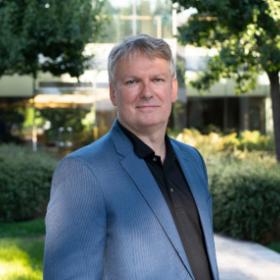
Supporters
The Global Cooperation in Cyberspace program thrives on the support and leadership provided by:

The seventh Global Cyberspace Cooperation Summit, hosted by the EastWest Institute, completed its work in Berkeley by making significant progress on key global cybersecurity issues.
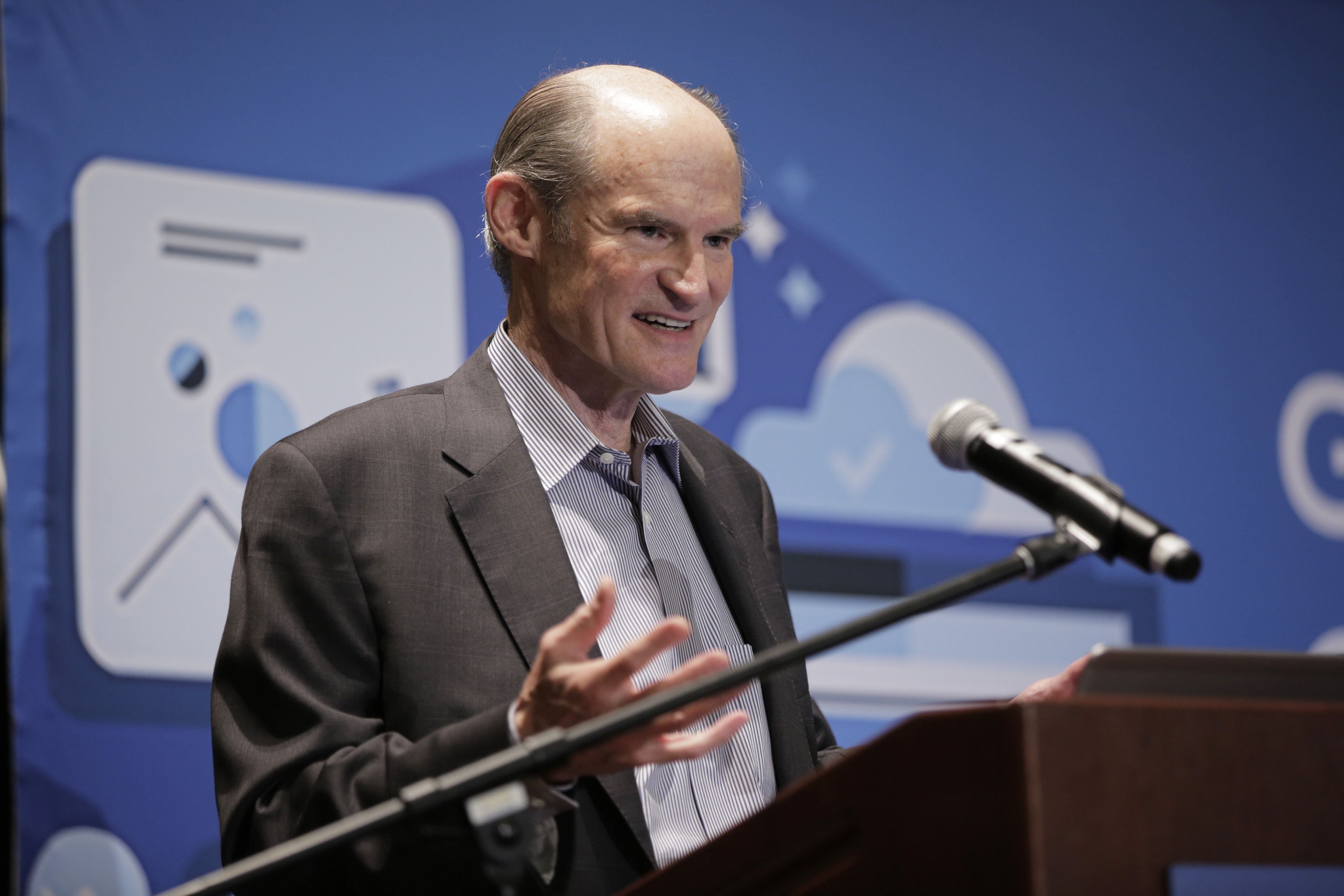
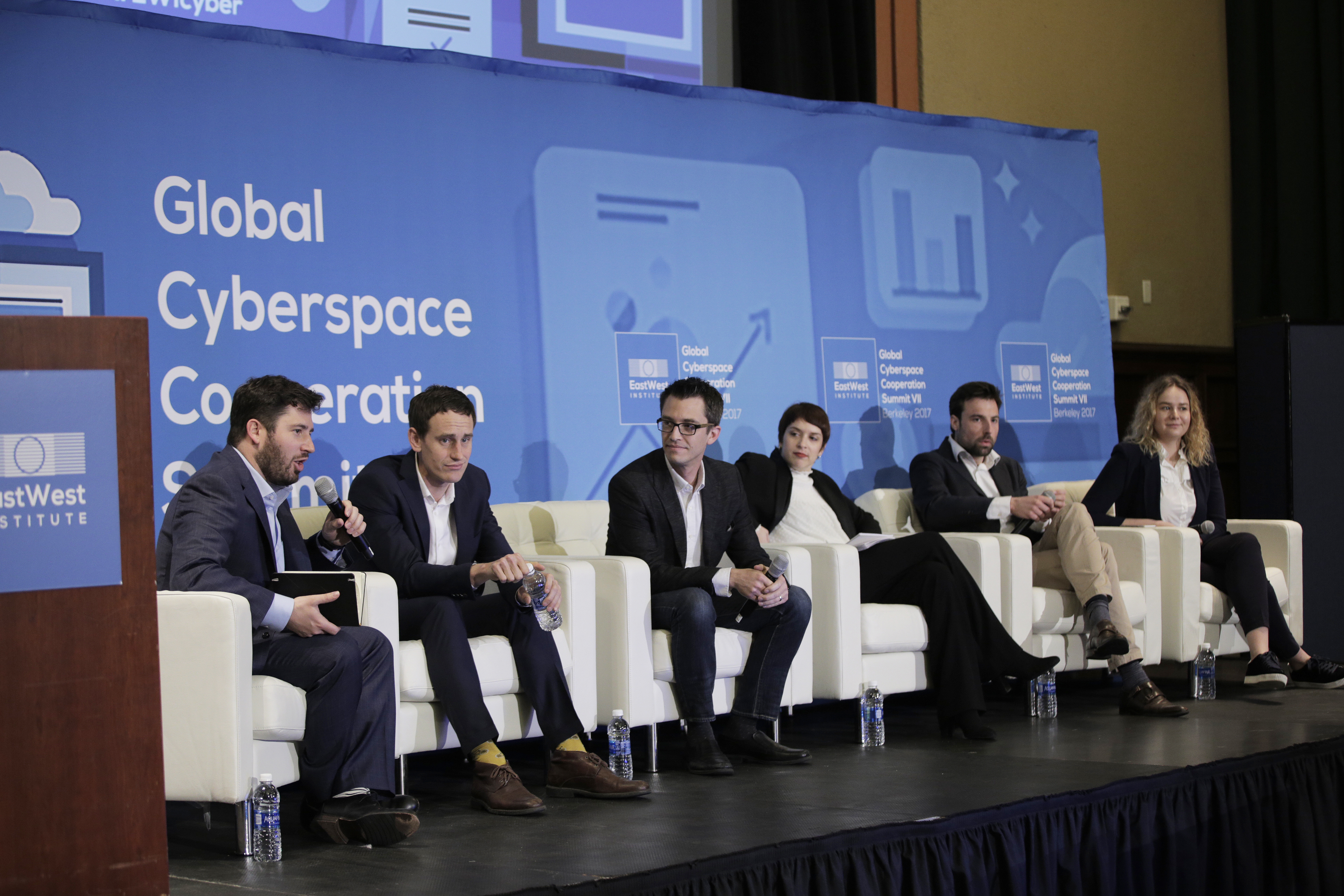
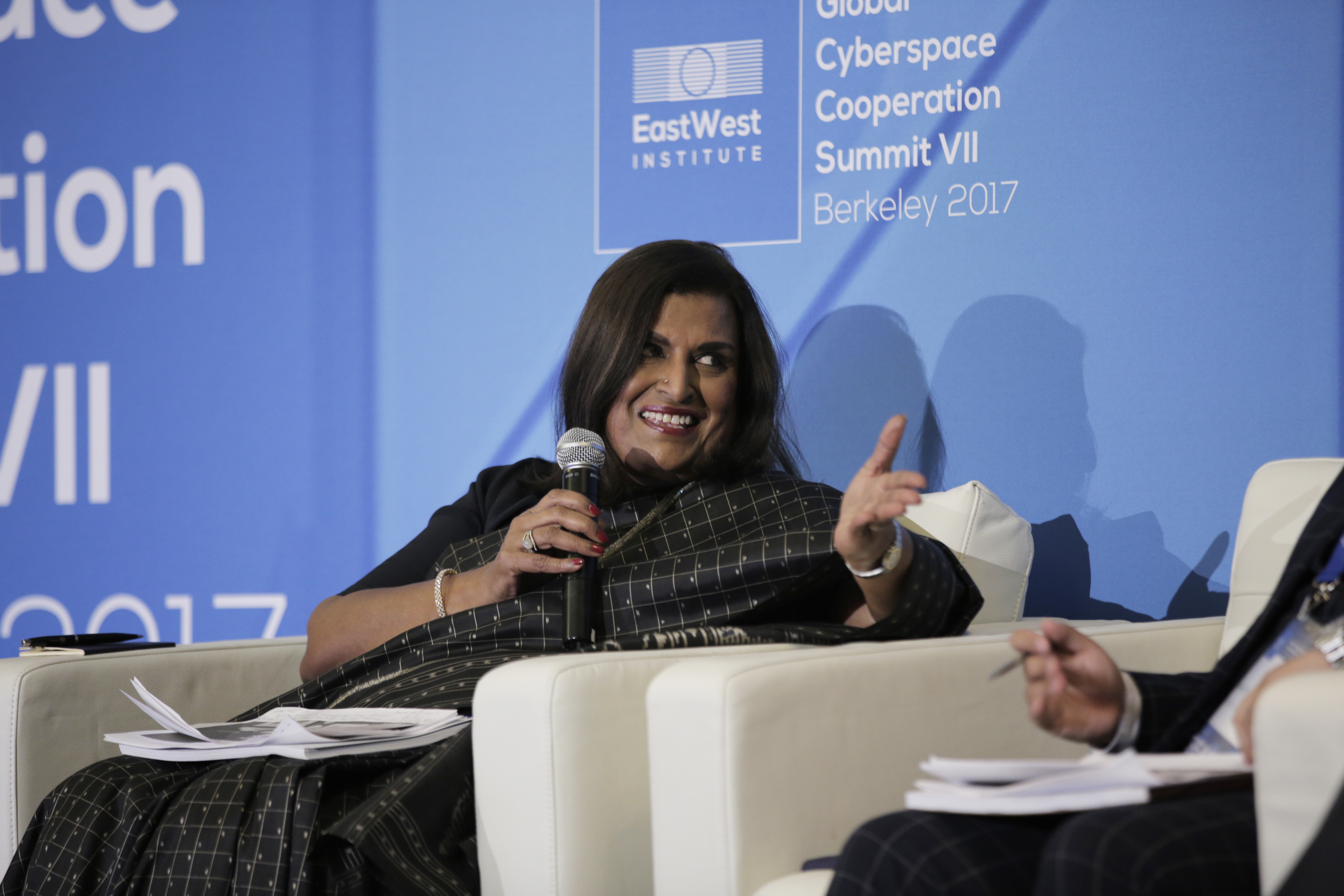
On Day III, Bruce McConnell, Global Vice President of the EastWest Institute, kicked off with comments to contextualize many of the ongoing discussions taking place among participants. McConnell took stock of the view that cyber continues to be a new frontier, an exciting place that represents the edge of the future—our collective future. Importantly, heightened connectivity brings the entire world closer and with it, the challenge of forging a path forward for cybersecurity that requires new rules both in policy and practice. He concluded by expressing his appreciation for everyone’s engagement at the Summit, underlining its role in moving the needle forward with allowing time to discuss the problems versus time expended on driving solutions.
PLENARY PANEL III: INSIGHTS FROM YOUNG LEADERS
The Young Leaders panel provided a platform for five ambitious young professionals and academics who represent the new wave of thinking among tomorrow’s cybersecurity practitioners. Each of the panelists expressed a viewpoint on how cybersecurity is evolving and the key challenges ahead. These included: the need for structures to enhance dialogue between public and private sectors; using such dialogues to bring forth a level of governance across various sectors and countries (inclusive policymaking that goes beyond a security-only perspective); understanding why so many countries seek to develop an offensive cyber capability; providing clarity where certain cyber experts and firms confuse the landscape as to what is a an actual cyber threat; and the need for regimes in the future post-cyber world that will be underlined by AI, biohacking and similar advancements.
PLENARY PANEL IV: REPORT FROM BREAKTHROUGH GROUPS
Breakthrough group representatives reported on results from workshop sessions, focusing on proposed next steps. The representatives were questioned by a distinguished international panel that posed questions and added insights. The panel was comprised of Latha Reddy, Distinguished Fellow, EastWest Institute; Former Deputy National Security Advisor of India; Co-Chair, Global Commission on the Stability of Cyberspace Speakers; Shen Yi, Associate Professor, Research Center for the Governance of Global Cyberspace, Fudan University; and Eli Sugarman, Program Officer, Cyber Initiative, William and Flora Hewlett Foundation.
Each of the representatives reported on the range of valuable insights offered by participants and the robust dialogue that took place, often reflecting contrasting points of view based on experience, strategic outlook and cultural diversity. Emphasis was placed on the next programmatic steps that each group will take to maintain momentum, and ensure continued progress. The breakthrough group report slides may be found here.
KEYNOTE ADDRESS: THE FUTURE OF SECURITY INDUSTRY COOPERATION
René Bonvanie, Chief Marketing Officer and Executive Vice President, Palo Alto Networks, delivered the keynote address, The Leap Forward. He first focused on the aspect of trust—both in innovation and productivity, examining how both aspects of innovation have evolved over time, where recent history has shown many innovations start off as constructive tools, only to morph into negative applications. Think drones.
Bonvanie went on to explain that unbridled innovation may have a distinct dark side, where the lack of rules of engagement fosters bad behavior. Moving forward he argued we will need to evolve our technology ecosystem into Sharing 2.0, consisting of information and data exchange as regards devices, sensors and probes, algorithms and policies, and machine learning—all for the greater good.
PLENARY PANEL V: TECH+PEOPLE: SECURING THE FUTURE CONNECTION
Betsy Cooper, Executive Director, Center for Long-term Cybersecurity at Berkeley led a panel featuring experts representing the commercial technology sector. The panelists—Ray Dolan, President and CEO, Sonus Networks; Sami Nassar, Vice President, Cyber Security Solutions, NXP Semiconductors; and Andy Purdy, Chief Security Officer, Huawei Technologies USA—dove into a range of topics, including big data; 5G and the coming demands of interoperability to move seamlessly from one platform to another; the commoditization of connectivity technology, where security is increasingly becoming a cost center; and the aspect of authentication, developing a “passport” where possible security threats are stopped at the border of the network rather than the current means of trying to catch the culprit after entry.
The panelists concluded by sharing their viewpoints about attracting, training and retaining talent. The talent pipeline represents a tremendous challenge for the tech industry, which is responding with the introduction of internal universities, sophisticated, multiple-year training programs and related initiatives to build and retain top talent.
KEYNOTE CONVERSATION: TRUST IN CYBERSPACE: MYTH OR REALITY
Francis Fukuyama, Mosbacher Director, Center on Democracy, Development, and the Rule of Law, at Stanford University, was featured in a discussion on trust in cybersecurity. He commented on the role of the Internet and social media which at its onset, was seen as having a positive impact on democracy. Fukuyama explained that the perception was the net got rid of gatekeepers while mobilizing activism. Today, that perception has been turned on its head, as those gatekeepers are missing and only now audiences begin to realize their value—to mediate and curate news and help provide a balance in presentation—offsetting the new reality of fake news, or as he called it, “today’s wild west of information sharing.”
The new information landscape has also brought about a new phenomenon, whereas bandwidth has increased, political compartmentalization has risen in step—meaning likeminded people gather and share their opinions, which without the benefit of diverse opinion, can regress into more extreme positions. He concluded that in today’s era of polarization, trust and verification are required to ensure that good information will push out bad information.
Looking Forward
This concludes the final day of the Summit, but not the conclusion of the important work being undertaken by the EastWest Institute, its sponsors and participants. EWI thanks each of its event sponsors and all 218 participant experts who took the time to engage with their peers to address critical areas of cybersecurity.
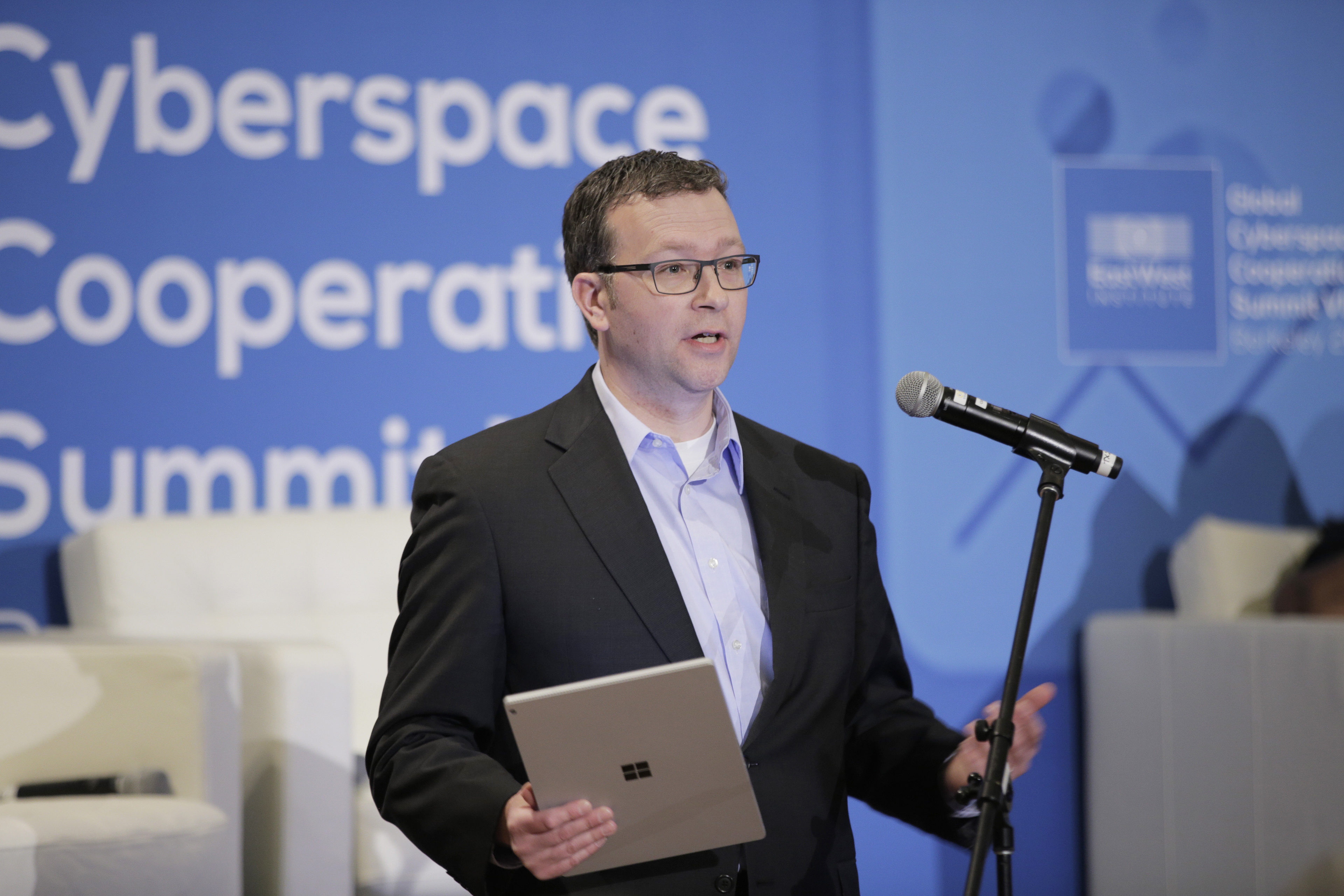
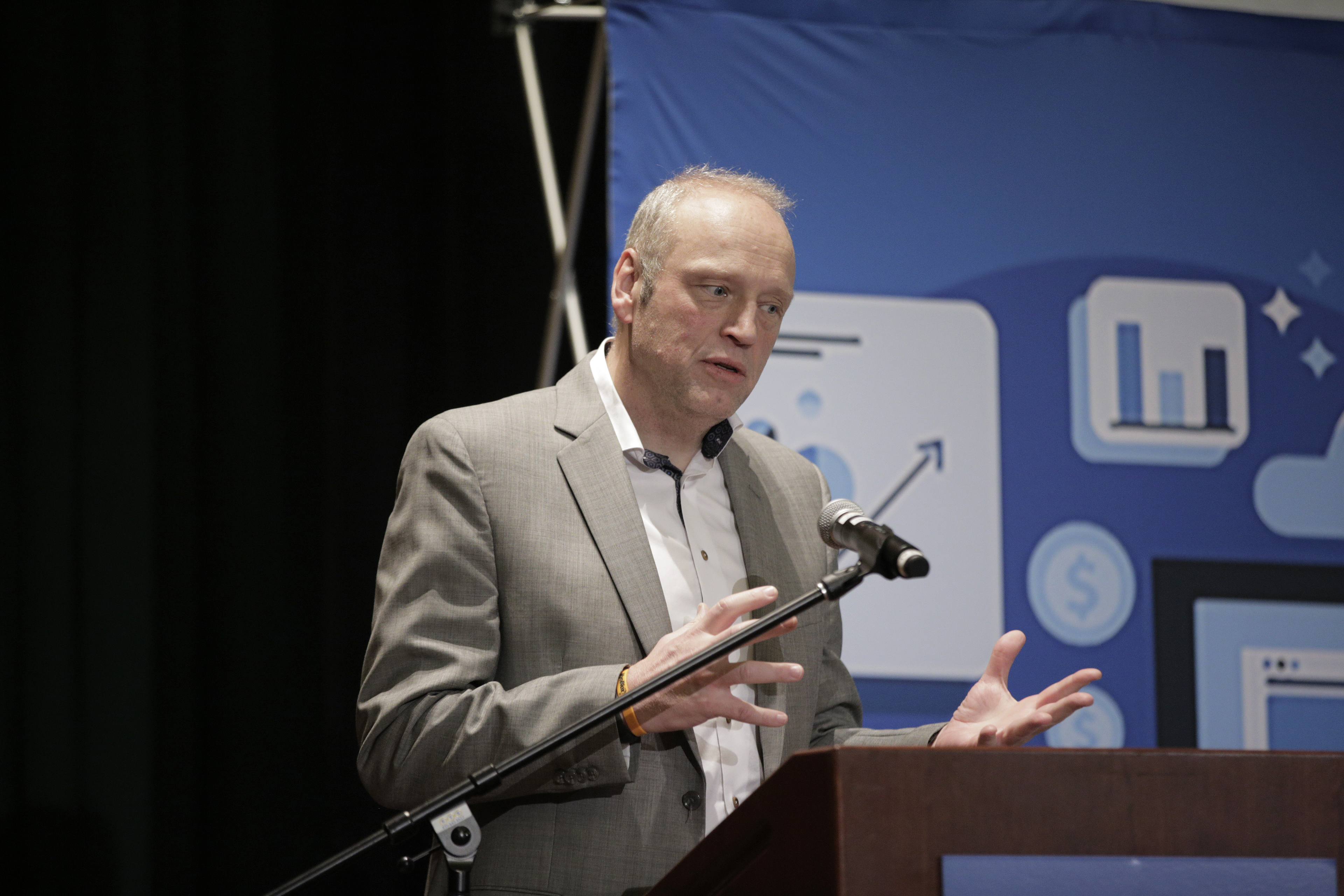
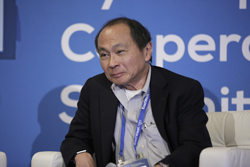
Click here for Day II
Click here for Day I
The Global Cooperation in Cyberspace program thrives on the support and leadership provided by: